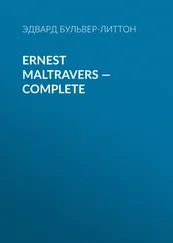Эдвард Бульвер-Литтон - Athens - Its Rise and Fall, Complete
Здесь есть возможность читать онлайн «Эдвард Бульвер-Литтон - Athens - Its Rise and Fall, Complete» — ознакомительный отрывок электронной книги совершенно бесплатно, а после прочтения отрывка купить полную версию. В некоторых случаях можно слушать аудио, скачать через торрент в формате fb2 и присутствует краткое содержание. Жанр: foreign_prose, История, literature_19, Европейская старинная литература, foreign_edu, foreign_antique, на английском языке. Описание произведения, (предисловие) а так же отзывы посетителей доступны на портале библиотеки ЛибКат.
- Название:Athens: Its Rise and Fall, Complete
- Автор:
- Жанр:
- Год:неизвестен
- ISBN:нет данных
- Рейтинг книги:4 / 5. Голосов: 1
-
Избранное:Добавить в избранное
- Отзывы:
-
Ваша оценка:
- 80
- 1
- 2
- 3
- 4
- 5
Athens: Its Rise and Fall, Complete: краткое содержание, описание и аннотация
Предлагаем к чтению аннотацию, описание, краткое содержание или предисловие (зависит от того, что написал сам автор книги «Athens: Its Rise and Fall, Complete»). Если вы не нашли необходимую информацию о книге — напишите в комментариях, мы постараемся отыскать её.
Athens: Its Rise and Fall, Complete — читать онлайн ознакомительный отрывок
Ниже представлен текст книги, разбитый по страницам. Система сохранения места последней прочитанной страницы, позволяет с удобством читать онлайн бесплатно книгу «Athens: Its Rise and Fall, Complete», без необходимости каждый раз заново искать на чём Вы остановились. Поставьте закладку, и сможете в любой момент перейти на страницу, на которой закончили чтение.
Интервал:
Закладка:
IV. So much for the alleged improbability of one author for the Iliad. But with what face can these critics talk of “probability,” when, in order to get rid of one Homer, they ask us to believe in twenty! Can our wildest imagination form more monstrous hypotheses than these, viz.—that several poets, all possessed of the very highest order of genius (never before or since surpassed), lived in the same age—that that genius was so exactly similar in each, that we cannot detect in the thoughts, the imagery, the conception and treatment of character, human and divine, as manifest in each, the least variety in these wonderful minds—that out of the immense store of their national legends, they all agreed in selecting one subject, the war of Troy—that of that subject they all agreed in selecting only one portion of time, from the insult of Achilles to the redemption of the body of Hector—that their different mosaics so nicely fitted one into the other, that by the mere skill of an able editor they were joined into a whole, so symmetrical that the acutest ingenuity of ancient Greece could never discover the imposture 170 Конец ознакомительного фрагмента. Текст предоставлен ООО «ЛитРес». Прочитайте эту книгу целиком, купив полную легальную версию на ЛитРес. Безопасно оплатить книгу можно банковской картой Visa, MasterCard, Maestro, со счета мобильного телефона, с платежного терминала, в салоне МТС или Связной, через PayPal, WebMoney, Яндекс.Деньги, QIWI Кошелек, бонусными картами или другим удобным Вам способом.
– and that, of all these poets, so miraculous in their genius, no single name, save that of Homer, was recorded by the general people to whom they sung, or claimed by the peculiar tribe whose literature they ought to have immortalized? If everything else were wanting to prove the unity of Homer, this prodigious extravagance of assumption, into which a denial of that unity has driven men of no common learning and intellect, would be sufficient to establish it.
3d. “That if the Odyssey be counted, the improbability is doubled; that if we add, upon the authority of Thucydides and Aristotle, the Hymns and Margites, not to say the Batrachomyomachia, that which was improbable becomes morally impossible.”
Were these last-mentioned poems Homer’s, there would yet be nothing improbable in the invention and composition of minor poems without writing materials; and the fact of his having composed one long poem, throws no difficulty in the way of his composing short ones. We have already seen that the author need not himself have remembered them all his life. But this argument is not honest, for the critics who have produced it agree in the same breath, when it suits their purpose, that the Hymns, etc., are not Homer’s—and in this I concur with their, and the almost universal, opinion.
The remaining part of the analysis of the hostile argument has already been disposed of in connexion with the first proposition.
It now remains to say a few words upon the authorship of the Odyssey.
V. The question, whether or not the two epics of the Iliad and Odyssey were the works of the same poet, is a very different one from that which we have just discussed. Distinct and separate, indeed, are the inquiries whether Greece might produce, at certain intervals of time, two great epic poets, selecting opposite subjects—and whether Greece produced a score or two of great poets, from whose desultory remains the mighty whole of the Iliad was arranged. Even the ancients of the Alexandrine school did not attribute the Odyssey to the author of the Iliad. The theme selected—the manners described—the mythological spirit—are all widely different in the two works, and one is evidently of more recent composition than the other. But, for my own part, I do not think it has been yet clearly established that all these acknowledged differences are incompatible with the same authorship. If the Iliad were written in youth, the travels of the poet, the change of mind produced by years and experience, the facility with which an ancient Greek changed or remodelled his pliant mythology, the rapidity with which (in the quick development of civilization in Greece) important changes in society and manners were wrought, might all concur in producing, from the mature age of the poet, a poem very different to that which he composed in youth. And the various undetected interpolations and alterations supposed to be foisted into the Odyssey may have originated such detailed points of difference as present the graver obstacles to this conjecture. Regarding the Iliad and Odyssey as wholes, they are so analogous in all the highest and rarest attributes of genius, that it is almost as impossible to imagine two Homers as it is two Shakspeares. Nor is there such a contrast between the Iliad and the Odyssey as there is between any one play of Shakspeare’s and another 171 Конец ознакомительного фрагмента. Текст предоставлен ООО «ЛитРес». Прочитайте эту книгу целиком, купив полную легальную версию на ЛитРес. Безопасно оплатить книгу можно банковской картой Visa, MasterCard, Maestro, со счета мобильного телефона, с платежного терминала, в салоне МТС или Связной, через PayPal, WebMoney, Яндекс.Деньги, QIWI Кошелек, бонусными картами или другим удобным Вам способом.
. Still, I should warn the general reader, that the utmost opposition that can reasonably and effectually be made to those who assign to different authors these several epics, limits itself rather to doubt than to denial.
VI. It is needless to criticise these immortal masterpieces; not that criticism upon them is yet exhausted—not that a most useful, and even novel analysis of their merits and character may not yet be performed, nor that the most striking and brilliant proofs of the unity of each poem, separately considered, may not be established by one who shall, with fitting powers, undertake the delightful task of deducing the individuality of the poet from the individualizing character of his creations, and the peculiar attributes of his genius. With human works, as with the divine, the main proof of the unity of the author is in his fidelity to himself:—Not then as a superfluous, but as far too lengthened and episodical a labour, if worthily performed, do I forego at present a critical survey of the two poems popularly ascribed to Homer.
The early genius of Greece devoted itself largely to subjects similar to those which employed the Homeric muse. At a later period—probably dating at the Alexandrian age—a vast collection of ancient poems was arranged into what is termed the “Epic Cycle;” these commenced at the Theogony, and concluded with the adventures of Telemachus. Though no longer extant, the Cyclic poems enjoyed considerable longevity. The greater part were composed between the years 775 B. C. and 566 B. C. They were extant in the time of Proclus, A. D. 450; the eldest, therefore, endured at least twelve, the most recent ten centuries;– save a few scattered lines, their titles alone remain, solitary tokens, yet floating above the dark oblivion which has swept over the epics of thirty bards! But, by the common assent, alike of the critics and the multitude, none of these approached the remote age, still less the transcendent merits, of the Homeric poems.
Читать дальшеИнтервал:
Закладка:
Похожие книги на «Athens: Its Rise and Fall, Complete»
Представляем Вашему вниманию похожие книги на «Athens: Its Rise and Fall, Complete» списком для выбора. Мы отобрали схожую по названию и смыслу литературу в надежде предоставить читателям больше вариантов отыскать новые, интересные, ещё непрочитанные произведения.
Обсуждение, отзывы о книге «Athens: Its Rise and Fall, Complete» и просто собственные мнения читателей. Оставьте ваши комментарии, напишите, что Вы думаете о произведении, его смысле или главных героях. Укажите что конкретно понравилось, а что нет, и почему Вы так считаете.












